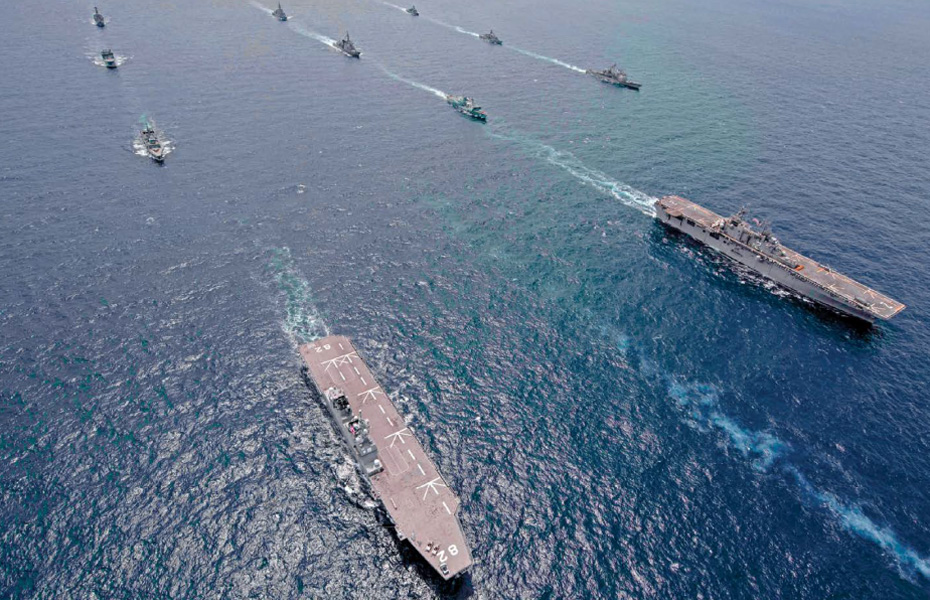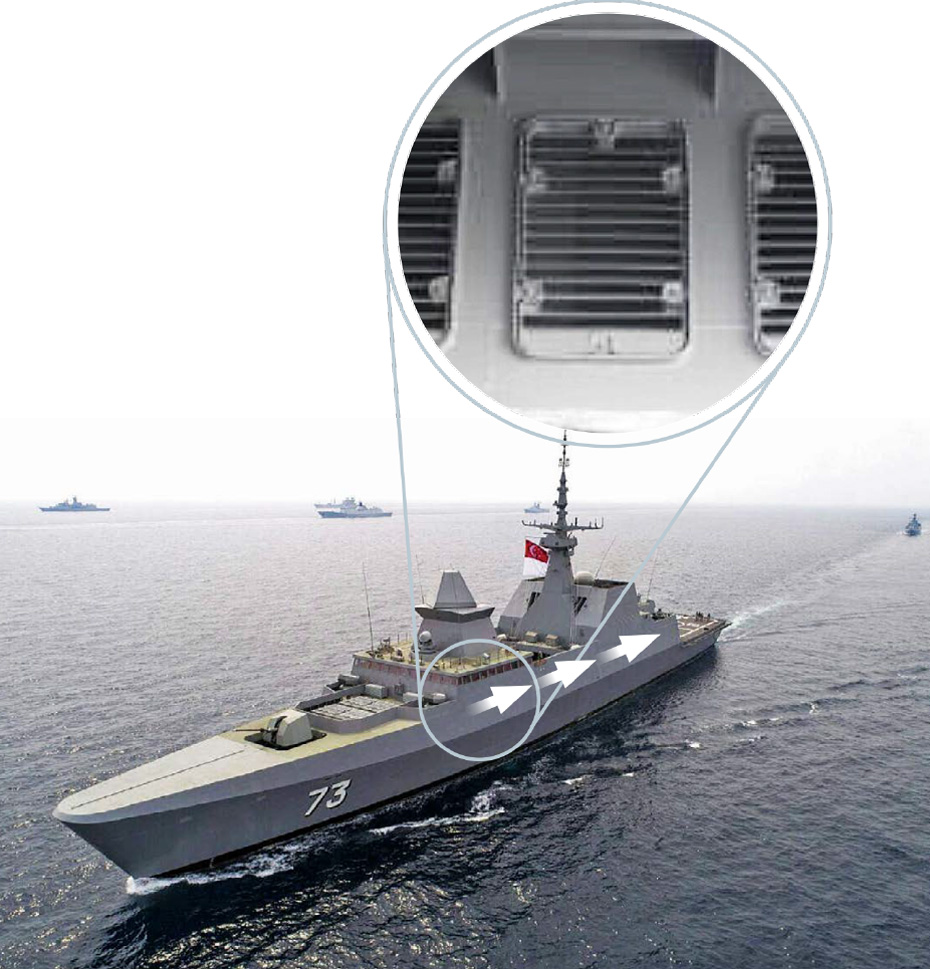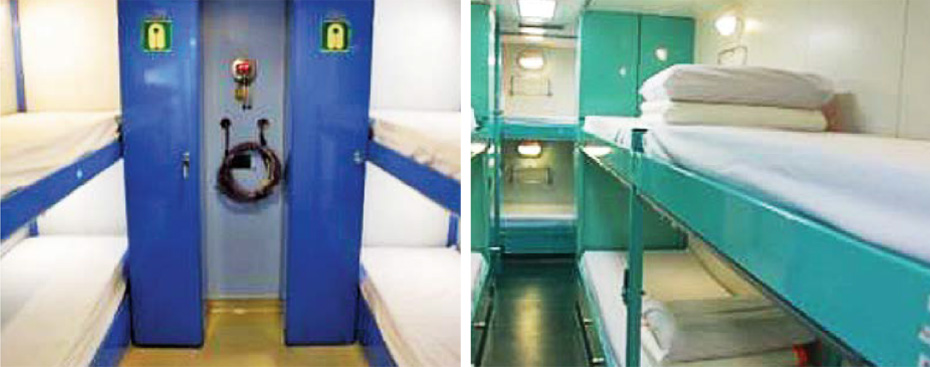In the early days of the pandemic, the RSN implemented comprehensive measures to ensure that potential COVID-19 cases were quickly detected, their contacts traced, and they were isolated outside of their ship. If a COVID-19 case was detected when the ship was at sea, the ship had to return to harbour - unless it was deployed for a critical operation or overseas exercise, in which case even more safeguards would be taken to minimise spread among the crew.
For RSS Supreme, which sailed to Hawaii in June 2020 to participate in the Rim of the Pacific Exercise (RIMPAC) 2020, this meant that there would have to be adaptations to the operations on board. She was going to the world's largest maritime military exercise and this would be the SAF's first engagement with foreign militaries since the start of the pandemic. It was just as important to protect our sailors from the virus as it was to focus on mission success. Some living spaces on board were repurposed as isolation and quarantine facilities in case of an outbreak. The crew was trained to handle more complex engineering contingencies in case some members came down with COVID-19. Large-scale and live planning conferences were replaced by weekly virtual huddles to allow all countries to respond more quickly to COVID-related changes. With the robust planning and a comprehensive set of safety measures, RSS Supreme was able to complete the deployment successfully and safely.

RIMPAC 2020 participants sailing in formation.
Source: MINDEF
Back home, as the COVID-19 situation developed, the RSN worked hard on resolving the problem of how to carry on full operations while managing the risk of infection. The subsequent emergence of the more transmissible and less virulent Omicron variant, and a young and fully-vaccinated sailor population that was regularly screened, gave the RSN leadership the confidence that COVID-positive sailors would be unlikely to develop serious complications. While the HRP at the national level gave some assurance that recovery in place was workable, there was a significant difference in that a ship accommodated many more people living in close proximity within a confined space.
After carefully monitoring the evolving conditions, and equipped with the experience from RIMPAC 2020, the RSN was convinced that COVID-positive sailors could similarly recover safely on board ship while out at sea. Recover@Sea was implemented in November 2021. There was a solution because the RSN did not settle for an either-or outcome. It was possible to be operational while also ensuring that the sailors' health would not be jeopardised.

One-way ventilation air flow system directing contaminated air out of ships to enable Recover@Sea.
Source: MINDEF

Shipboard isolation (left) and quarantine (right) facilities with separate ventilation air flow circuits on board RSN ships to enable Recover@Sea.
Source: MINDEF